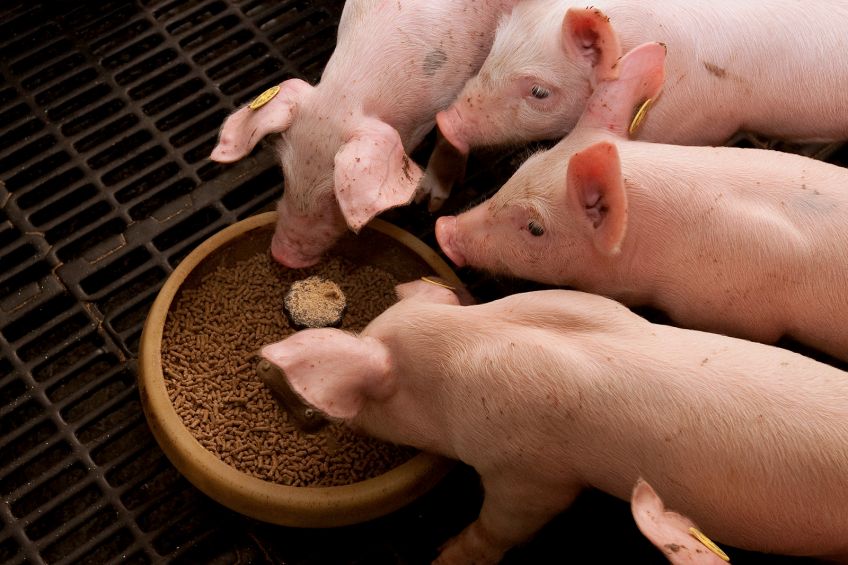Feed additives could reduce survival of SDCoV faster

Using certain kinds of feed additives may reduce Swine Delta Coronavirus (SDCoV) survival in complete feed faster.
That was the outcome of a study by a group of researchers from the University of Minnesota, who presented it at the Joint Annual Meeting of the American Dairy Science Association (ADSA) and the American Society of Animal Science (ASAS), held 12-16 July in Orlando, FL, United States.
Feed is a potential route of transmission
The researchers pointed out that feed contaminated with faeces from infected pigs is a potential route of transmission of SDCoV. Organic acids and feed additives are included in diets to improve nutritional value.
The objectives of their study were to determine if organic acids or additives at recommended or twice the recommended concentrations are effective in reducing the survival of SDCoV in feed.
Set-up of the experiments
In their abstract, the researchers describe that in total, 5 g aliquots of complete feed were placed in scintillation vials followed by addition of 1 of 8 additives at recommended concentrations of:
- 150 mg Ultracid P (orthophosphoric, citric, fumaric, and malic acid; Nutriad);
- 20 mg Activate DA (organic acids and 2-hydroxy-4-methylthio butanoic acid; Novus International);
- 10 mg Kem-Gest (phosphoric, fumaric, lactic, and citric acid; Kemin Agrifoods);
- 10mg Acid Booster (phosphoric, citric, and lactic acid; Agri Nutrition);
- 56 µL Luprosil (propionic acid; BASF);46 µL formic acid (formic acid; BASF);
- 20 mg salt;
- or 20 mg sugar.
In experiment 1, virus was grown and titrated in swine testicular (ST) cells and was added to all vials at 1 mL/vial followed by vortexing and storage of vials at room temperature (25°C) for 5 weeks.
In experiment 2, twice the recommended concentration of additives was added to aliquots and experimental conditions were identical to those used in experiment 1 except that virus survival was evaluated on d 0, 1, 3, 7, and 10 of storage.
No reduction of inactivation kinetics?
In experiment 1, the researchers observed that it takes 0.86 days to reduce the concentration of virus by 1 log. None of the additives tested reduced the inactivation kinetics of the virus at recommended doses.
Twice the recommended concentration
However, adding twice the recommended concentration reduced the time for 1 log inactivation in feeds with Acid Booster (0.28 days), Activate DA (0.12 days), and salt (0.09 days).
In an extended report published on the National Hog Farmer website, the researchers point out that ‘further research is needed to determine if there are interactive effects of active ingredients in various feed additives’.
About SDCoV, PEDv and TGEv
SDCoV was first discovered in 2012 in China, and the first confirmed case in the US was in Ohio in 2014. Currently, three different types of coronavirus are known to affect pig guts. The most well-known is Porcine Epidemic Diarrhoea virus (PEDv), the other two being Porcine Delta Coronavirus (PDCv) and Transmissible Gastroenteritis virus (TGEv).
The research was done by Katie M. Cottingim, Harsha Verma, Fernando Sampedro, Pedro E. Urriola, Gerald C. Shurson and Sagar M. Goyal.











